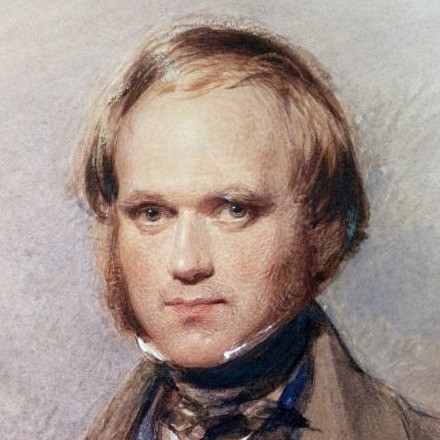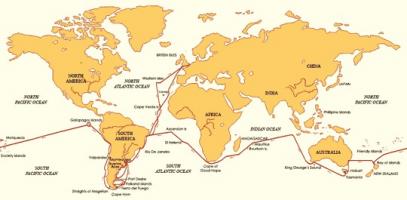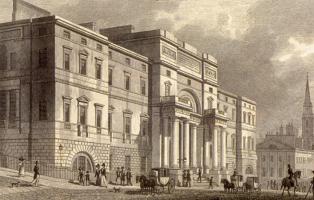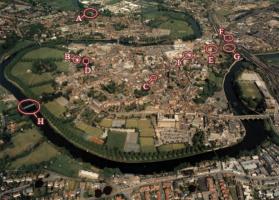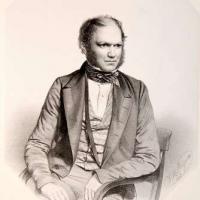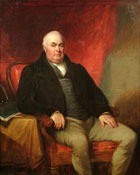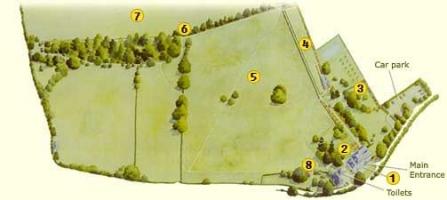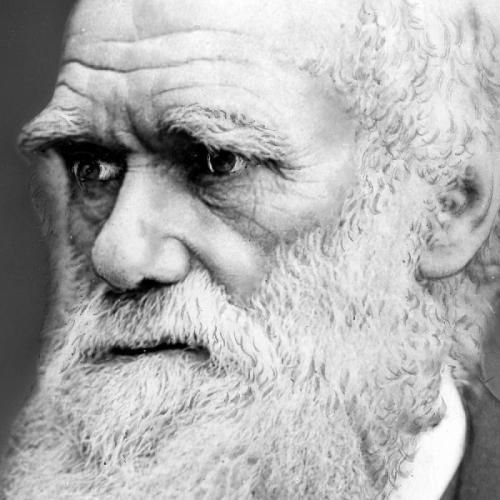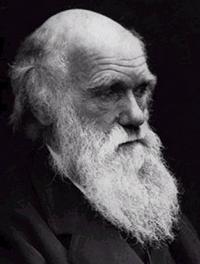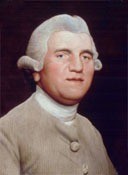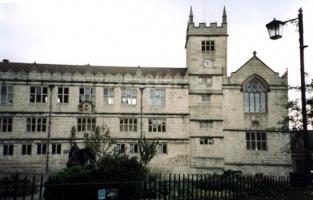Charles Darwin's Informal Education
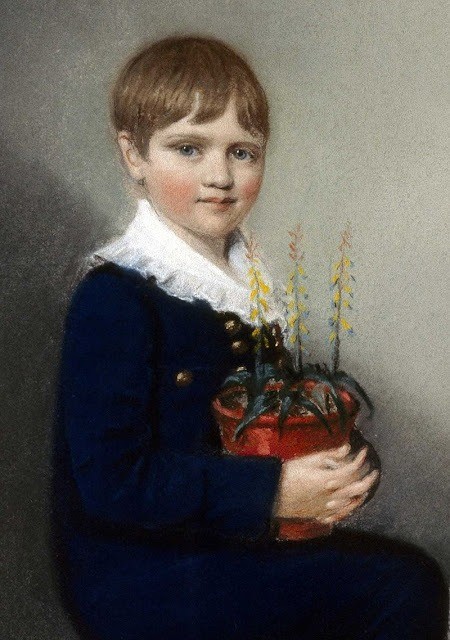
It has often been repeated that, as a young boy, Charles Darwin was not a good student or that he was lazy. However, it is apparent that he had a natural inclination towards science and showed an enthusiastic willingness to devote time and effort to it at an early age. In his autobiography he recalls a situation when he was only eight years old and a student at Rev. Case's School that suggests this orientation.
“At 8 1/2 years old I went to Mr. Case's School. I remember I took great delight at school in fishing for newts in the quarry pool. I had thus young formed a strong taste for collecting, chiefly seals, franks, etc., but also pebbles and minerals …”.
and
“The passion for collecting which leads a man to be a systematic naturalist, a virtuoso, or a miser, was very strong in me, and was clearly innate, as none of my sisters or brother ever had this taste.”
When he was nine years old Darwin was enrolled in Dr. Butler's Shrewsbury school where he was required to take ‘the classics’ -- ancient history and Greek, which he found rather uninteresting and consequently received poor grades. On the other hand, he enjoyed reading Shakespeare’s historical plays and poems by Byron, Scott, Thomson, and the Odes of Horace. Nevertheless, his main interest was in the natural sciences, which was encouraged only informally outside the classroom. Evidence of this was seen while on vacations with his family in North Wales, when he would collect insects, sea shells, minerals, and geological specimens with enthusiasm.
When Charles was just 13 years old his brother Erasmus had set up a small chemistry lab in the garden shed which was in the kitchen garden some distance from the main house in the side yard. Charles recalled this experience with his brother in the following quote in his autobiography.
“Towards the close of my school life, my brother worked hard at chemistry, and made a fair laboratory with proper apparatus in the tool-house in the garden, and I was allowed to aid him as a servant in most of his experiments. He made all the gases and many compounds, and I read with great care several books on chemistry, such as Henry and Parkes' 'Chemical Catechism.' The subject interested me greatly, and we often used to go on working till rather late at night. This was the best part of my education at school, for it showed me practically the meaning of experimental science. The fact that we worked at chemistry somehow got known at school, and as it was an unprecedented fact, I was nicknamed "Gas." I was also once publicly rebuked by the head-master, Dr. Butler, for thus wasting my time on such useless subjects; and he called me very unjustly a "poco curante," and as I did not understand what he meant, it seemed to me a fearful reproach.”
[A “poco curante” is one who cares about small things, while being indifferent to important things]
While it is true that Charles did not perform well at Reverend Butler's school and his grades were not remarkable, perhaps we should realize from his own words about his experience at the school that "nothing could have been worse for my mind," that he understood his own mind when it came to determining what he was best suited to do with his life, and was rather mature for his age. In fact, throughout his life he seemed to have an uncanny idea about what his contribution would be, in spite of what others said about his academic performance. A particularly prescient statement in this regard was in a letter of acceptance to FitzRoy just before they left England on the Beagle, "the day of the Beagles departure would be glorious. My second life will begin and it shall be as a birthday for the rest of my life."
In addition, consider how Darwin took advantage of the many opportunities to advance his interest in science throughout his college years when he had an opportunity to learn informally from others. For instance, Charles made a number of friends among the faculty, staff, and students at both Edinburgh and Cambridge, from whom he learned a great deal. Perhaps the most important friendship that he developed at Edinburgh was with a young professor of comparative anatomy and zoology, Robert Grant. The two of them would walk down to Leith Harbour or along the Firth of Forth to collect marine animals such as oysters and sponges, and Grant taught him how to dissect these difficult specimens under seawater using a single-lens microscope, a technique he would use for the rest of his life. Grant also informally taught him about the development of invertebrates that eventually became important to Darwins theory of evolution. One of the reasons the friendship became so rewarding was that Grant was interested in the topic of transmutation and was familiar with the work of Charles' grandfather Erasmus Darwin published in Zoonomia, as well as the views of Lamarck and Cuvier on the topic. Grant discussed his views with Charles, and while Charles was astonished by them he did not recall that they made an impression on his mind. Nevertheless it would seem that this informal education became very important to Darwin's approach to his research on evolution. It is fair to say that Grant's influence led to Darwin's first presentation of a scientific paper before the Plinian Society at Edinburgh on March 27, 1827. There were also several other scientific communications and papers that resulted from this special yet informal relationship between these two men.
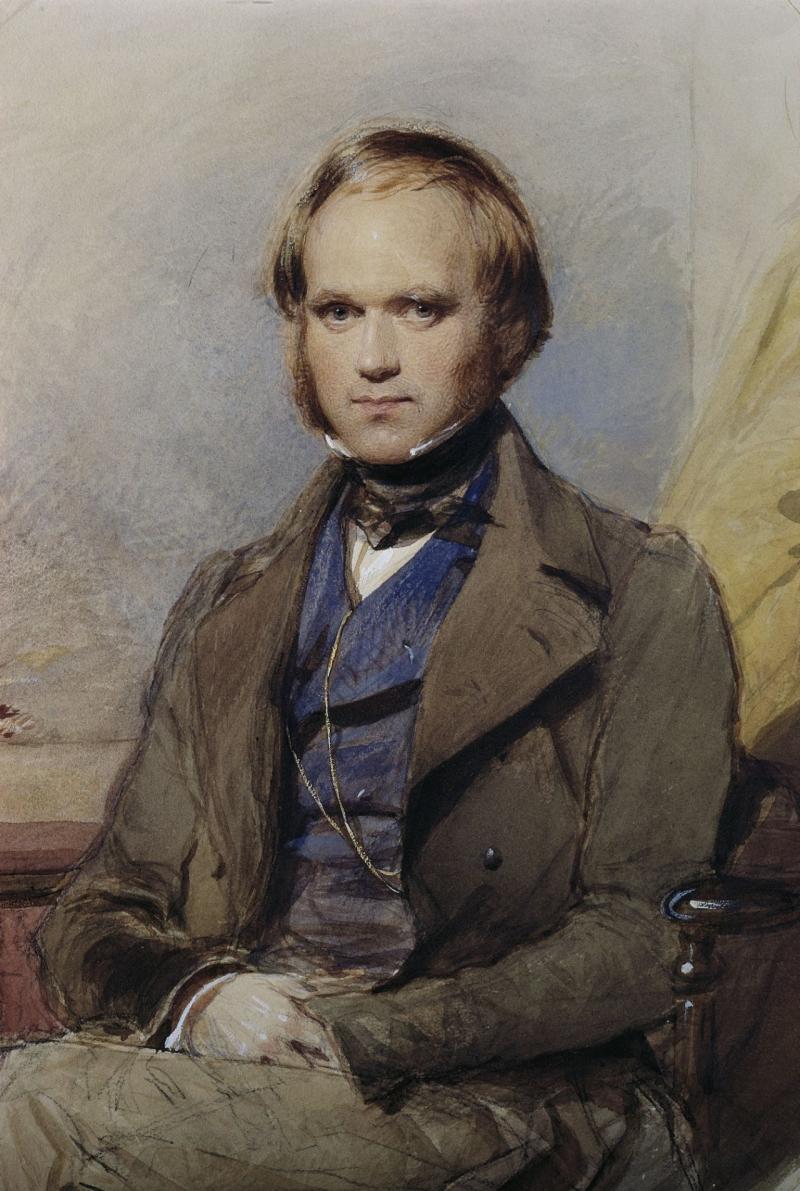
Darwin's interest in entomology was first stimulated by his cousin William Darwin Fox, a fellow student at Cambridge who was interested in beetles. The two of them would go for walks in the countryside and collect beetles with great seriousness and enthusiasm. Although Charles was at Cambridge to study to become a member of the clergy, he did not show great interest in it and often missed classes. From this informal activity with Fox, collecting beetles and naming them, by going to reference books by Lamarck, Curtis, and Samouelle that Darwin would eventually note, "it is quite absurd how interested I am getting about the science." It was this close friendship with Fox that brought out the best in Charles while they both were at Cambridge, and it contributed much to his future. Collecting beetles became a passion for both of them and Darwin subscribed to an entomological journal, published by James Stephens in London. At one point Charles sent thirty-four beetles and a moth he had captured to Stephens, and Stephens rewarded him by mentioning his name in his publication. One can appreciate Darwin's enthusiasm from the following quote, "No pursuit at Cambridge was followed with nearly so much eagerness or gave me so much pleasure as collecting beetles. It was the mere passion for collecting, for I did not dissect them and rarely compared the external characteristics with published descriptions, but I got them named anyhow .... No poet ever felt more delighted at seeing his first poem published than I did at seeing in Stephens' Illustrations of British Insects the magic words, Captured by C. Darwin, Esq." In a letter to Fox, he bragged, " you will see my name in Stephens' last number."
Two professors at Cambridge also became particularly important to his informal education and to his future career. Of these, certainly John Stevens Henslow was the most important. Henslow was professor of botany but had also been professor of mineralogy. Charles' brother Erasmus had attended Henslow's mineralology lectures and described him as "the man who knows every branch of science. Charles established an informal friendship with Henslow, one that would prove to be exceedingly important, he would eventually say of Henslow that he "influenced my career more than any other."
The most important aspects of this relationship came during Darwin's last terms at Cambridge when he came to know Henslow very well and often joined the family for dinner. They would take long walks together and became close friends while retaining a relationship of student and teacher. It is reasonable to suggest that it was this informal knowledge of Darwin's abilities that lead Henslow to recommend him to FizRoy for the position of naturalist aboard the Beagle, a recommendation that would open the door to Darwin's future.
The other Cambridge professor who contributed substantially to Darwin's informal education was Adam Sedgwick, professor of geology. Henslow had suggested to Darwin that he take Sedgwick's course in geology but more importantly, he also asked Sedgwick to consider taking Charles on part of his field excursion to north Wales during the summer vacation of 1831.. During this informal trip Darwin learned a great deal about geology at the practical level and how to record the data they were gathering. This information came none to soo, for it was at the end of this field trip that Charles received that all-important-letter from Henslow informing him of the possibility that he could be chosen as the unpaid naturalist to sail on the Beagle!
